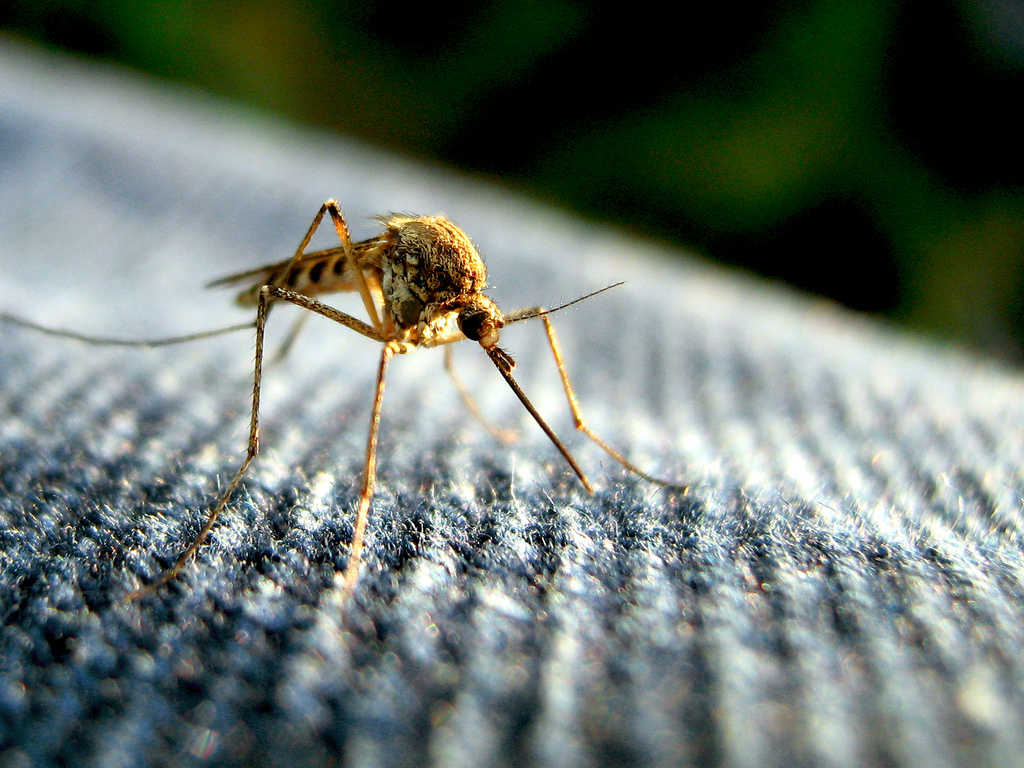How has the International community responded, what are possible solutions, and how does this affect reproductive and women’s rights in Brazil?
In part 1, we covered the basic tenets of Zika, its history, modes of transmission, and the forms of testing and treatment available currently. Now, we will explore the impact of this seemingly deadly disease on Brazil through an international relations and public health lens.
World Response
The Centers for Disease Control and Prevention (CDC) initially warned only pregnant women from traveling to areas with Zika virus. Critics such as former assistant US surgeon general and former director Dr. José Cordero believes that men should get targeted also, as there is more evidence of transmittance of the virus through sex. Since then, the CDC has included men in its recommendations, suggesting that men who live in or have traveled to areas with Zika use condoms correctly every time they engage in any type of sex. This includes anal, vaginal, and oral sex. They also recommend that men not have sex with pregnant women.

In the photo: Critics rejected the CDC’s notion that women should be solely responsible in maintaining their health. It’s just like how this woman rejects this guy’s advances. Photo credit: Howcast.com
The World Health Organization (WHO) advice is expected to rely on limiting mosquito exposure to women planning on getting pregnant instead of focusing on limiting women’s rights to get pregnant. WHO expects this outbreak to worsen as the effects of El Niño intensify and increase the mosquito populations in these affected areas.
Laws and policies that restrict her access to these services must be urgently reviewed in line with human rights obligations in order to ensure the right to health for all in practice.
– UN’s Office of the High Commissioner for Human Rights
The Pan-American Health Organization (PAHO) believes the best way to combat Zika (and other mosquito-borne diseases) is to utilize vector control. This includes strengthening surveillance, control and elimination tactics. Things to note include the mosquitoes’ resistance to pesticides, their resilience, surveillance methods, and human movement throughout the affected regions. They believe that reducing the number of mosquitoes in the region will remedy this situation.
Canadian Blood Services, the management service for Canada’s blood supply and blood products, have asked that people who have traveled outside the country, the US, and Europe to not donate blood for at least a month. They call the suggestion precautionary as there have been no known transfusion-based Zika virus transmissions. The US Food and Drug Administration (FDA) and American Red Cross are looking into blood supply issues regarding mosquito-borne illnesses but have not advised one way or another just yet.
Lastly, the United Nations (UN) has also chimed in on this issue, calling for governments in affected areas to reexamine their current stances on contraception and abortion. UN High Commissioner for Human Rights Zeid Ra’ad Al Hussein believes the key to leading an effective response to Zika is upholding women’s human rights, including removing obstacles to sexual and reproductive health service access. He said that many Latin American governments’ responses to this crisis have been inadequate in addressing the issues that face women. He stated that in environments where sexual violence is common, it is hard for women and girls to exercise control over situations in which they may become pregnant.
“Laws and policies that restrict her access to these services must be urgently reviewed in line with human rights obligations in order to ensure the right to health for all in practice,” Hussein said in a press release.
Much of this occurs because of men’s failures to uphold women’s and girls’ rights in these countries, according to Hussein. He stated that in order for these governments to create effective public health campaigns surrounding the Zika epidemic they have to ensure that all citizens have comprehensive, quality, and affordable reproductive health information and services provided for them in supportive environments. He noted that this includes maternal healthcare and safe abortion practices.
Possible Solutions
In the photo: Biotech firm Intrexon plans on releasing geneticlaly-modified mosquitoes to reduce the mosquito population in areas hit hardest by Zika and other mosquito-borne diseases. Photo credit: Flickr/Tom CC2.0
One possible solution that has caught on in mainstream media is to release genetically-modified male mosquitoes into the wild. Biotech firm Intrexon said that they genetically modify males and release these mosquitoes into the wild because they don’t bite and feed off of people (and won’t spread Zika). These males, in theory, will mate with females and impregnate them. Due to the genetic modification, the progeny are unable to move past their larval stage and suffer premature death. Essentially, the offspring die young before they can mature and spread any viruses, including Zika. In their trial tests, Intrexon had seen drastic decreases in transmission rates of Zika, dengue, and chikungunya viruses, all of which run rampant in the testing areas. Brazil plans on releasing these genetically-modified mosquitoes throughout the country.
KP – While in theory this would be a great idea, doing so may have ecological consequences for Brazil.
Another solution is using pesticides like pyriproxyfen to control for mosquito populations in affected areas. The CDC called out media reports that pyriproxyfen has contributed to microcephaly. They stressed that the pesticide has never been linked to microcephaly and would not explain why babies with microcephaly have been born with Zika virus in their brains.
KP – This solution works well and can be rolled out almost immediately.
In the photo: Municipal workers getting ready to spray pesticides throughout Rio to curb the mosquito-based epidemic. Photo credit: Getty Images
The last solution comes from the many suggestions by the CDC, UN, NIH, and other international organizations: to ensure proper access to contraceptives and family planning services.
Contraceptives and Reproductive Rights
Access to family planning services has helped in decreasing the overall amount of illegal abortions in Brazil. One of the biggest issues regarding maternal mortality in Brazil is unsafe abortion practice. Researchers recommended that strategies to prevent unsafe abortion practices should integrate reduction of unwanted pregnancy, quality healthcare for women during the abortion procedure itself, management of complications, and family planning pre- and post-abortion procedure. Unfortunately, in the parts of Brazil where Zika is most prevalent, the ratio of doctors per person is 1 doctor to every 500 people. Many of these women have no access to safe abortion spaces, let alone contraceptives.
Researchers discovered that over 4 million admissions to hospitals in Brazil were unsafe abortion-related between 1996-2012. They estimated that over 16 million occurred in the country during that time period. Currently, anencephaly, rape-based pregnancies, pregnancies that pose harm to the pregnant woman, and pregnancies that result in a baby that will not survive are the only types of abortions allowed in Brazil. Some factors that may deter people from admitting to having an abortion include the social, cultural, religious, moral, and legal ramifications associated with this illegal activity. Researchers pointed out that the restrictive policies imposed by the Brazilian government did not deter women from getting abortions, but rather just increased their desire to engage in risky behaviors, including undergoing illegal abortions.
Approximately 1 million abortions are performed yearly, with 200,000 of them resulting in hospitalization from complications associated with unsafe abortion practices. The illegal abortion policy disproportionately affects young, poor, and uneducated women. Many women rely on household objects like coat hangers, knitting needles, poisons, or even anti-inflammatory medications like misoprostol to self-abort. Though the government took measures to curb misoprostol use for DIY abortions, women are able to get the drug on the black market. In other words, these desperate women may not necessarily be getting what they pay for. Illegal abortions tend to occur double the amount in places like Brazil than in places like the US, whereas the abortion rate in the Netherlands is half of that in the US. (Wyler, 2013).
Women seeking medical abortions are at higher risk of sexual assault and humiliation. This even extends to when they purchase misoprostol from the pharmacy, where women have reported getting harassed or even forced to let the pharmacist insert the drug vaginally, and many providers will just refuse to perform any abortions due to the murkiness surrounding the legality of abortions.

In the photo: Catholicism plays a major role in Brazilian culture and identity. Pictured here is the Christ the Redeemer statue. Photo credit: Wikipedia/Chensiyuan
Religion plays a major role in Brazilian culture, and the Brazilian contingency of the Catholic church stands firmly against abortion even in light of the issues surrounding microcephaly. Bishop Leonardo Ulrich Steiner of the National Conference of Bishops of Brazil explained that abortion leads to eugenics, and that those in favor of looser abortion laws have taken advantage of this public health crisis to expand the context of legal abortions. Research has pointed to women taking matter into their own hands and engaging in illegal abortion practices.
Pope Francis, the most important living figure in the Catholic Church, stated that the Catholic Church will allow for contraceptive use during sex in places where Zika could possibly be transmitted. Pope Francis himself compared his concession to Pope Paul VI’s authorization for nuns in the Belgian Congo to take oral birth control pills due to their higher risk of being raped during the civil unrest in the area. Critics from within the Church and outside agree that Pope Francis is not changing the Church’s stances, but rather he is using past experiences and stretch them as much as he can, altering conservative attitudes when it comes to social issues. It’s important to note that Pope Francis’ words work only for contraception; he referred to abortion as an absolute evil and terrible crime.
While Catholicism may be the most popular religion in Brazil, Pentecostals make up a great chunk of the minority religious affiliations within the country. Pentecostals themselves increased in numbers from 4 percent in 1960 to 15.4 percent in 2000. A zealous and fervent group, Pentecostals opposed abortion the strongest of all religious groups in Brazil. Social norms play a role in belief development for much of Brazil’s Pentecostal population.
In addition, Brazil has a history of healthcare-based disparities that affect women and other minorities. While the CDC and WHO among other international organizations may recommend that women in these affected areas gain access to contraception and other family planning methods to prevent unwanted pregnancies from happening, Brazil and the rest of the countries with a stake in this issue have to also provide that access. Studies have shown that women in general do not receive the same level of care that men receive in Brazil. Poor women in Brazil usually lack access to contraception and other family planning methods, and according to researchers, may be a reason why abortion rates rose between 1980 and 1991.
In 1996, only four clinics approved to provide abortions existed in Brazil. This changed drastically by 2001, when 63 hospitals were able to provide abortions under the guidelines provided by Brazilian Ministry of Health. Some barriers to women’s access to abortion care includes health care professionals’ reluctance to provide the service, the demand for extra medical exams, documentation procedures by police officers, and judicial authorization. In order to qualify under the rape clause for an abortion in Brazil, survivors just need to sign over their consent to the doctor, but that is usually easier said than done.
One study found that nearly 1 in 10 physicians believed that a woman who claimed that she was raped actually was raped and would guarantee her right to an abortion. Nearly half of abortion providers required a police report, judicial authorization, expert medical authorization, or even institutional ethics committee authorization. Many times if a doctor refuses to perform an abortion, the doctor won’t provide the patient with a referral to another doctor.
Public sector healthcare takes care of approximately 75 percent of the Brazilian population, while privatized healthcare takes care of the rest. This private sector is funded through private and public funding, including private insurance, and is associated with higher income and educational levels. The unlawfulness of abortion makes its access in legitimate settings nonexistent for most women.
These circumstances lead to women undergoing less safe procedures with increased levels of maternal mortality and morbidity. Safe abortions are performed in the private sector but for a high cost, making it less affordable to poorer people. Besides the issues associated with self-induced abortions through misoprostol, those who try to abort their pregnancies often face discrimination for their actions. Brazil has a history of institutional violence based on gender and sexist prejudices against women. For example, compared to men, women receive inadequate care in the form of doctor refusals to provide information, verbal abuse, threats of imprisonment, unnecessary vaginal manipulation, and neglect in assistance from healthcare workers.

In the photo: Newborn baby with microcephaly cries. Maybe to voice the frustration of his mother and countless other Brazilian women who experience gender-based healthcare disparities daily. Photo Credit: AP
The Silver Lining
This is the silver lining throughout this whole ordeal, according to human rights activists and experts. They believe that the Zika epidemic will spur Latin American and South American countries to change their approach to women’s reproductive rights and healthcare. Most of these Zika-afflicted, Latin American countries have laws in place that allow for abortions in cases where the pregnancy affects the health of the pregnant woman. These experts say that shifting the focus of the argument from one rooted in culture and religion to one rooted in public health initiatives and responses may help in relaxing the restrictions posed by governments on women’s reproductive rights. The Human Rights Watch (HRW) believes this may remove some of the stigma associated with abortion and other reproductive rights-based discussions.
The Current State of Reproductive Rights in Brazil
Instead of heeding the words of these organizations, Brazilian government officials have chosen to go in the opposite route. Brazilian politicians have suggested cracking down harder on people seeking abortions, extending potential jail terms from three years to 4.5 years, in light of advisories from international organizations like the UN and WHO. The proposed bill would also extend prison time to doctors performing the procedure from 10 years to 15 years.
Politicians in favor of stricter abortion laws like the author Anderson Ferreira of Brazil’s Republican Party, believes such a law would help people understand the gravity surrounding “the crime that is abortion.” Ferreira’s cries for people to understand the significance of abortion come at a time when the Anis Institute of Bioethics plans to submit a proposal to the Brazilian Supreme Court to include microcephaly to the list of abortive exceptions, and provide women with proper contraceptive access and Zika testing. Those in favor of existing abortion laws cite that the rights of the unborn fetus as more important than those of the woman carrying the fetus. Those who want to change the laws usually cite the widespread use of illegal abortion techniques in Brazil that pose health risks for women undergoing those treatments.

In the photo: President Dilma Rousseff currently faces public wrath and calls for her resignation based on her handling of Brazil’s economic issues. Photo Credit: REUTERS/UESLEI MARCELINO
Sentiment regarding abortion is low in Brazil. Between a Constitution that guarantees the right to life even for fetuses and a Congress with much conservative representation including an influx of religious zealots, Debora Diniz, founder of the Anis Institute of Bioethics located in Brazil, knows this will be a hard battle to win in the name of reproductive healthcare. The political climate within Brazil is tense, with current president Dilma Rousseff undergoing impeachment procedures and the economy suffering.
Abortion is a contentious subject in Brazil. During the 2010 election, President Rousseff originally favored abortion legalization when she was set to sweep her competition in the election. After showing her support, she lost much of her political clout, pushing the election into a runoff. Evangelical groups and the Catholic Church condemned her stances and she ended up retracting her statement to save her political career, and promising to leave the abortion law as is if she was elected. She ended up winning after this policy opinion change.
Contributing Research:
Botelho, 2016; Centers for Disease Control and Prevention, 2016a; Centers for Disease Control and Prevention, 2016b; Cohen, 2016b; Corbett, 2016; Diniz, D’oliveira, & Lansky, 2012; Diniz, Madiero, & Rosas, 2014; Martins-Melo, Lima, Ramos, Carvalho, Machado, & Heukelbach, 2014; Office of the High Commissioner of United Nations Human Rights, 2016; Ogland & Verona, 2011; Pan-American Health Organization, 2016; Petroff, 2016a; Romero & Yardley, 2016; Sandy, 2016; Singh & Sedgh, 1997; Wyler, 2013; Zielinski & Ahmed, 2016.
_ _












